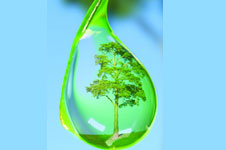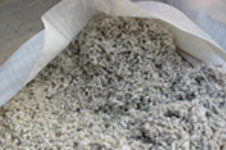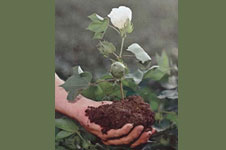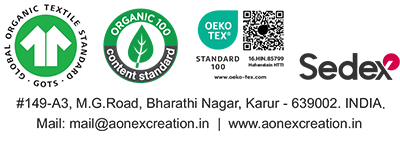Organic & Eco:
- Organic Cotton
- Benefits
- Organic Cotton vs Conventional Cotton
- Different
Organic cotton is grown using materials and methods that have a low impact on the environment. The principle of organic farming is working with the nature, not against it. Cotton is grown without pesticides and spun without chemicals. Organic cotton farmers do believe and rely on organic fertilizers, manual crop rotation and integrated pest management. Cotton fields are fertilized naturally and weeds are taken away manually or with hoes and farm tractors. To control crop damage are used pest-eating insects. Third-party certification organizations verify that organic producers use only methods and materials allowed in organic production. A Farm get the organic label by using soil that has been free of synthetic pesticides for at least three consecutive years.
Organic cotton is pure, natural and more breathable for sensitive skin. Organic cotton is grown and processed without toxic chemicals, so it is free from synthetic poisons that could be absorbed into the bloodstream by contact with the skin.
Chemically treated clothing, diapers and bedding block the natural balance of the skin because trap heat and obstruct it from breathing often causing eczemas and skin irritation on babies? skin.
Organic farms are free of chemical fertilizer- and pesticide, keeping their soil and water protected and usable for longer periods of time. Organic cotton clothing lasts longer due to its natural composition in fact the cotton that is grown in conventional ways is weakened by the chemicals used in growing, processing and dying of the cotton, all these additives break the fiber down and create a feeble, inferior cotton garment. Organic cotton is softer, thicker cotton that is stronger than thinner conventional cotton that gets worn out much faster from its use and washing.
Benefits For The Earth
In non-organic cotton farming, so many synthetic fertilizers, pesticides, herbicides, insecticides and defoliants are used that the soil itself is eventually completely void of any living matter. So what happens? The cotton can?t grow naturally, so farmers need to supply it with everything it needs to thrive, including synthetic fertilizers and huge amounts of water. Plus, the more pesticides farmers use, the more resistant cotton-eating bugs become, and the more pesticides farmers have to continue to apply. Its a cycle that doesn't end, and one that depletes the Earth we share.
With organic cotton, things are different. The earth is treated with care so that it continues to thrive and to give the cotton everything it naturally needs. No chemicals are added and no synthetic fertilizers are used. This means that even the water sticks around because the fertile earth keeps it there. And the healthy crops that result lead to even healthier soil. When excess water does eventually run off into nearby streams and lakes, its not filled with chemicals or synthetic fertilizers. Its a cycle that keeps getting stronger, and one that nourishes the Earth we share.
In non-organic cotton farming, many of the chemicals used are highly toxic and kill plants, animals and evenhumans. According to the UK-based Pesticide Action Network, at least 20,000 people in developing countries die every year from poisoning by agricultural pesticides, and three million suffer acute or reproductive after effects. These pesticides and other chemicals find their way into our food chain through things like cottonseed oil, which is found in everything from cookies to canned tuna. With organic cotton, things are different. Farmers aren?t exposed to harmful chemicals, so they dont face the associated health risks. Plus they use sustainable farming practices, which means they can rely on their crops year after year. The list of benefits goes on: neighbouring communities don?t drink water that?s contaminated with pesticide-filled run-off, consumers don?t eat cotton by-products that are filled with toxins, and fashion-conscious shoppers around the world dont expose their skin to harmful chemicals in their clothing. Its a process that lets everyone win!
Organic Cotton vs Conventional Cotton
Non-organic cotton uses more insecticides than any other crop.
Problems linked to pesticide use include: reduced soil fertility, frequent water pollution, reduced biodiversity in the surrounding areas and wild animal and livestock poisoning.
According to the UK-based Pesticide Action Network, at least 20,000 people in developing countries die every year from poisoning by agricultural pesticides and three million suffer acute or reproductive after effects.
The majority of cotton, by weight, ends up in our food supply. Cottonseed oil is used in everything from cookies to canned tunajust one more reason we need organic cotton!
Growing organic cotton means health and ecological damage can be prevented so that human illness, environmental depletion and financial losses can be reduced.
Organic cotton feels softer because the cotton fibers are left intact and not broken down by the chemicals used in the farming and processing of non-organic cotton.
Organic cotton is not finished with formaldehyde, which has been identified as a cancer-causing agent by the International Institute for Research on Cancer and which is used to finish non-organic cotton products.
Organic cotton is less likely to trigger allergies: there are no harmful chemicals and organic cotton is more breathable.
Organic cotton doesnt use chemicals, so water run-off is not toxic.
Each year, non-organic cotton producers around the world use nearly $2.6 billion worth of pesticides thats more than 10 per cent of the worlds pesticides and nearly 25 per cent of the worlds insecticides.

Soil and Water:
 Organic builds strong soil through crop rotation.
Organic builds strong soil through crop rotation.
Organic soil retains water more efficently because of increased organic matter in the soil.
After the initial conversion period to organic, production yields are the same or better.
Because of increased organic matter, organic soil is more efficient in carbon sequestration.
Seeds
 In organic production , GMO are prohibited.
In organic production , GMO are prohibited.
Organic seeds are untreated-conventional seeds are treated with fungicides or insecticides.
Weed Control
 Conventional production practices include the application of herbicides to the soil as well as repeated apllications of herbicides to control weeds.
Conventional production practices include the application of herbicides to the soil as well as repeated apllications of herbicides to control weeds.
Organic production practices include the physical removal of the weeds by mechanical or hand hoeing.
Insect Control
 Organic production practices encourage the balance between pests and their natural predators through crop rotation, trap crops and insectory strips as well as the use of beneficial insects, biological and cultural practices.
Organic production practices encourage the balance between pests and their natural predators through crop rotation, trap crops and insectory strips as well as the use of beneficial insects, biological and cultural practices.
Harvesting
 Conventional production systems rely heavily on the use of defoliants to kill the cotton prior to harvesting.
Conventional production systems rely heavily on the use of defoliants to kill the cotton prior to harvesting.
Organic production systems wait on a freeze, utilize water management, or hand harvest.






